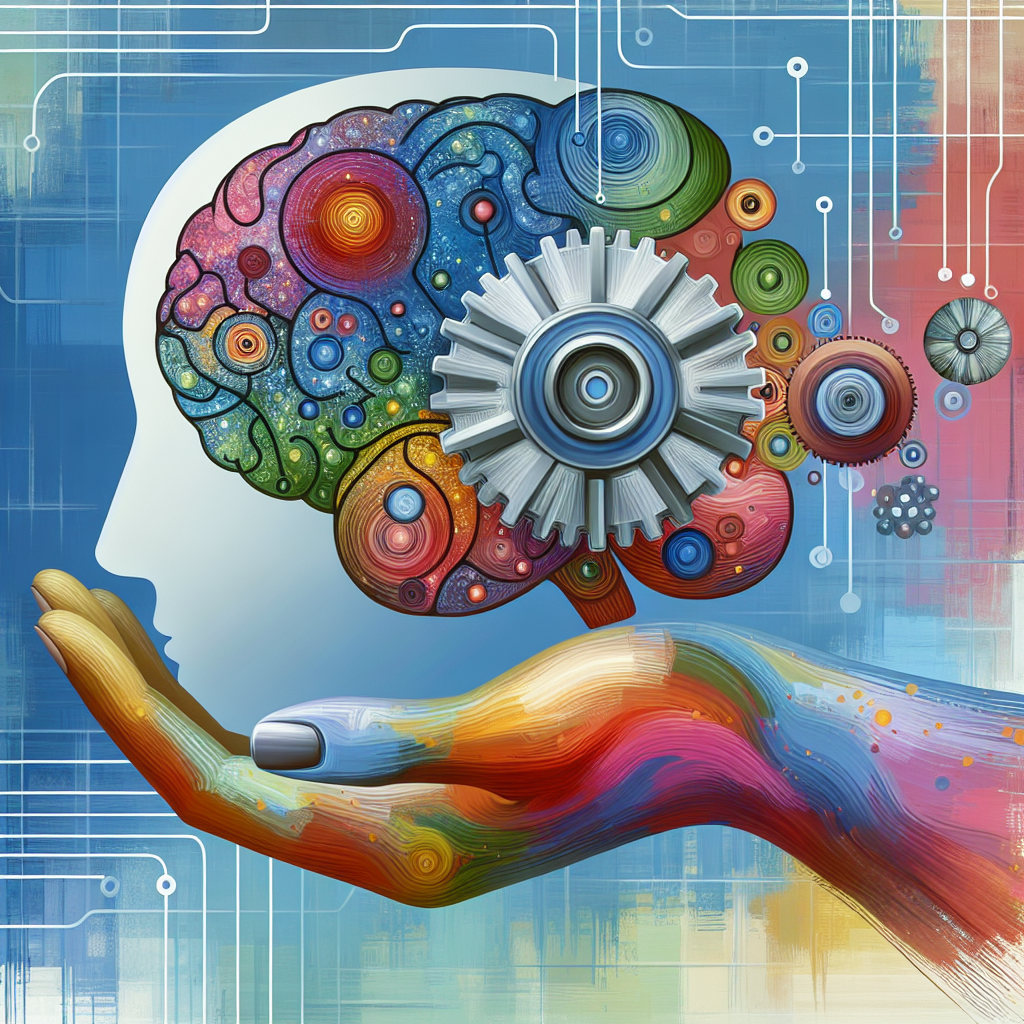Artificial Intelligence (AI) is a rapidly evolving field that has the potential to revolutionize many aspects of our lives, including healthcare. While AI has shown promise in improving healthcare outcomes and reducing costs, there are concerns about its impact on mental health. This article explores the potential benefits and challenges of AI development on mental health, as well as the ways in which AI can be used to support mental wellness.
AI and Mental Health: The Potential Benefits
There are several ways in which AI development can benefit mental health. One of the most promising applications of AI in mental health is in the early detection and diagnosis of mental health disorders. AI algorithms can analyze large amounts of data, such as electronic health records, social media posts, and smartphone usage, to identify patterns that may indicate the presence of a mental health condition. This can help healthcare providers to intervene earlier and provide more personalized treatment.
AI can also be used to improve the accessibility and affordability of mental health care. For example, chatbots and virtual therapists powered by AI can provide mental health support to individuals who may not have access to traditional therapy. These tools can offer immediate support, 24/7 availability, and personalized treatment recommendations based on the user’s symptoms and preferences.
In addition, AI can help to reduce the stigma surrounding mental health. Many individuals are hesitant to seek help for mental health issues due to fear of judgment or discrimination. AI-powered tools can provide a safe and anonymous space for individuals to seek support and guidance without the fear of stigma.
AI and Mental Health: The Challenges
While there are many potential benefits of AI development in mental health, there are also several challenges that need to be addressed. One of the main concerns is the potential for bias in AI algorithms. AI systems are only as good as the data they are trained on, and if the data is biased or incomplete, the AI system may produce inaccurate or discriminatory results. This can have serious consequences for individuals seeking mental health support, as biased algorithms may fail to identify their needs or provide appropriate treatment recommendations.
Another challenge is the lack of regulation and oversight in the development of AI-powered mental health tools. There are currently no standardized guidelines for the use of AI in mental health, which can lead to ethical concerns and potential harm to users. It is important for policymakers, researchers, and healthcare providers to work together to establish guidelines and best practices for the development and implementation of AI in mental health.
Furthermore, there are concerns about the potential for AI to replace human therapists and healthcare providers. While AI can provide valuable support and assistance, it is not a substitute for the human connection and empathy that is essential in mental health care. It is important for AI-powered tools to be used as complements to traditional therapy, rather than replacements.
How AI Can Support Mental Wellness
Despite the challenges, there are many ways in which AI can support mental wellness and help individuals to improve their mental health. AI-powered tools can provide personalized treatment recommendations, track progress over time, and offer support and guidance to individuals in need. For example, AI chatbots can provide cognitive-behavioral therapy techniques, mindfulness exercises, and coping strategies to help individuals manage stress, anxiety, and depression.
AI can also be used to predict and prevent mental health crises. By analyzing data on individuals’ behavior, mood, and social interactions, AI algorithms can identify patterns that may indicate an impending crisis and provide early interventions to prevent it. This can help individuals to stay healthy and well, and reduce the risk of relapse or hospitalization.
Furthermore, AI can be used to improve the quality of mental health care by providing decision support tools to healthcare providers. AI algorithms can analyze treatment outcomes, predict treatment responses, and recommend personalized treatment plans based on the individual’s unique needs and preferences. This can help to improve the effectiveness of mental health treatments and reduce the burden on healthcare providers.
FAQs
Q: Can AI diagnose mental health disorders?
A: AI algorithms can analyze data to identify patterns that may indicate the presence of a mental health condition, but they cannot diagnose disorders on their own. It is important for individuals to seek a formal diagnosis from a qualified healthcare provider.
Q: Are AI-powered mental health tools safe and effective?
A: The safety and effectiveness of AI-powered mental health tools depend on the quality of the algorithms and data they are based on. It is important for users to research the tools they are using and seek guidance from healthcare providers if needed.
Q: Will AI replace human therapists?
A: AI can provide valuable support and assistance in mental health care, but it is not a substitute for the human connection and empathy that is essential in therapy. AI should be used as a complement to traditional therapy, rather than a replacement.
In conclusion, AI development has the potential to have a significant impact on mental health, both in terms of benefits and challenges. While AI-powered tools can improve the accessibility, affordability, and effectiveness of mental health care, there are concerns about bias, regulation, and the potential for AI to replace human therapists. It is important for stakeholders to work together to address these challenges and ensure that AI is used responsibly and ethically in mental health care. By leveraging the power of AI to support mental wellness, we can help individuals to lead healthier and happier lives.

